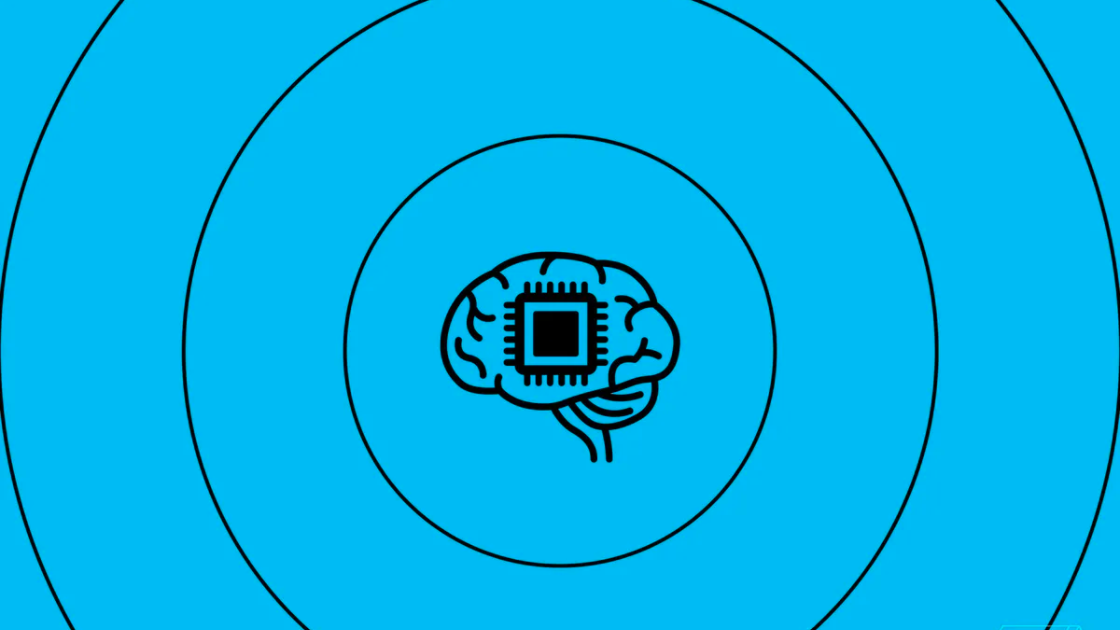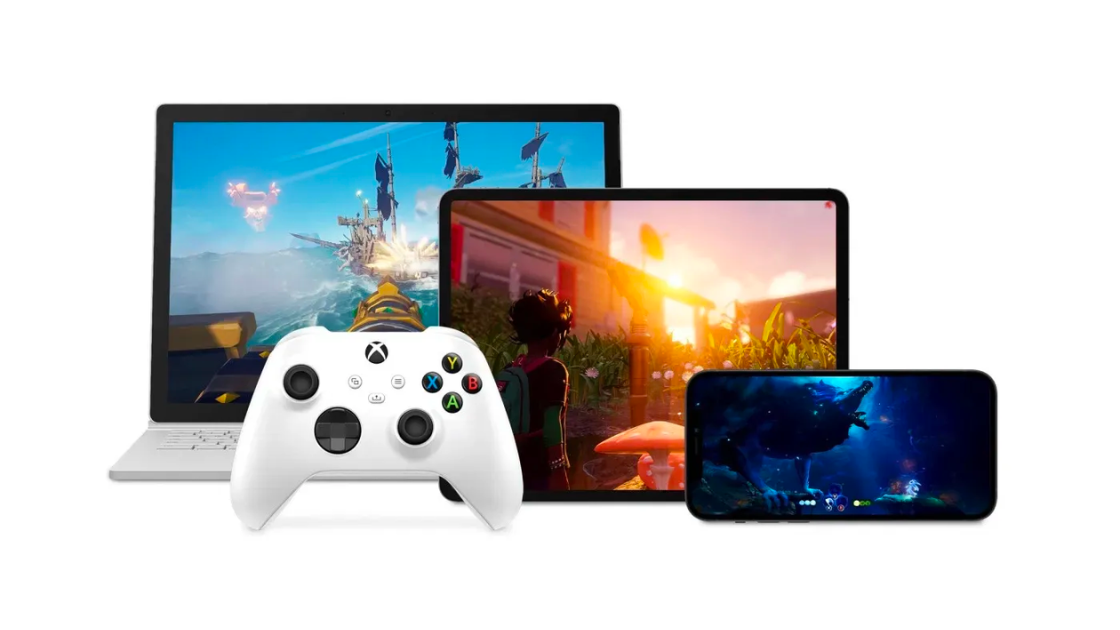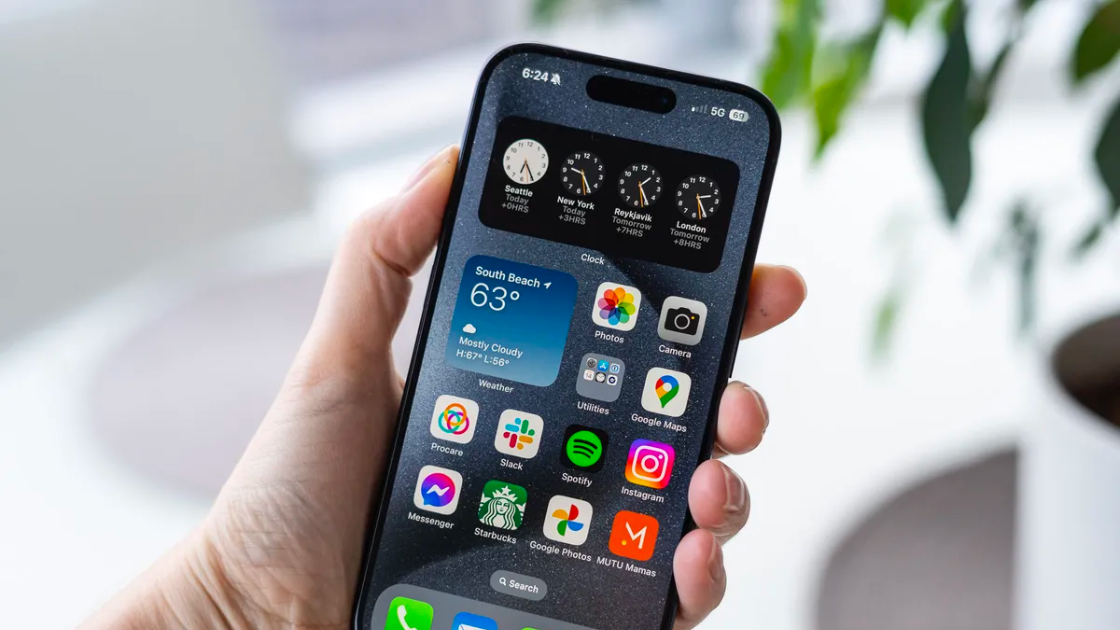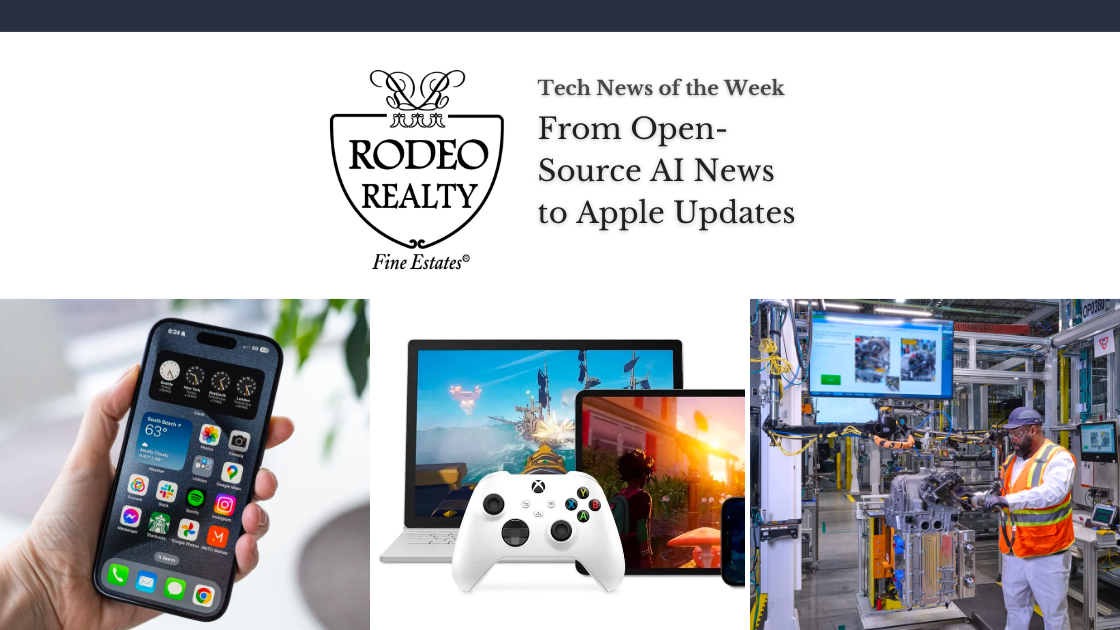As another week flies by, we‘re zooming in on the top tech news stories across the web. From Open-Source AI News to Apple Updates and more, we have you covered. Read on below for the headlines of the week through January 25.
GM and Honda Collaborate to Develop Hydrogen Fuel Cells for Diverse Products
 General Motors and Honda, through their joint venture FCSM, have commenced production of hydrogen fuel cells for diverse applications, indicating a shift in the automotive industry towards cleaner energy sources. These fuel cells, emitting only water vapor, are being eyed for heavy-duty vehicles and power generators, moving away from traditional gas-powered vehicles. Established in 2017, FCSM has recently started operations in their Brownstown, Michigan facility, built with an $83 million investment. However, the adoption of hydrogen in passenger cars has been slow due to the lack of refueling infrastructure. The Biden administration’s recent tax proposals aim to make hydrogen production cheaper and less polluting, but challenges remain in hydrogen storage and its current production methods that largely rely on fossil fuels.
General Motors and Honda, through their joint venture FCSM, have commenced production of hydrogen fuel cells for diverse applications, indicating a shift in the automotive industry towards cleaner energy sources. These fuel cells, emitting only water vapor, are being eyed for heavy-duty vehicles and power generators, moving away from traditional gas-powered vehicles. Established in 2017, FCSM has recently started operations in their Brownstown, Michigan facility, built with an $83 million investment. However, the adoption of hydrogen in passenger cars has been slow due to the lack of refueling infrastructure. The Biden administration’s recent tax proposals aim to make hydrogen production cheaper and less polluting, but challenges remain in hydrogen storage and its current production methods that largely rely on fossil fuels.
Google’s Partnership with Hugging Face Enhances Open-Source AI with ‘Supercomputer’ Capabilities

Google Cloud’s recent collaboration with Hugging Face, a leading AI model repository, offers developers the ability to build, train, and deploy AI models using Google’s advanced computing resources without requiring a Google Cloud subscription. This partnership grants affordable access to Google’s high-powered tensor processing units (TPU) and GPU supercomputers, including Nvidia’s sought-after H100s. Hugging Face, valued at $4.5 billion and supported by investments from Google, Amazon, and Nvidia, hosts over 350,000 models, akin to how GitHub is used for code sharing. Starting in the first half of 2024, Hugging Face users can utilize Google’s AI app-building platform Vertex AI and Kubernetes engine for training models. While some of Google’s models are available on Hugging Face, its prominent large language models like Gemini and Imagen remain more exclusive.
Apple Allows Game Streaming Services Access to the App Store

Apple has announced that it is opening its App Store to game streaming apps and services, allowing platforms like Xbox Cloud Streaming and GeForce Now to offer full-featured apps on iOS. This marks a significant shift from Apple’s previous policy, where each game had to be individually submitted and reviewed. Now, developers can submit a single app encompassing their entire gaming catalog. However, all content within these apps must adhere to App Store Review Guidelines, and the host app must maintain an age rating appropriate for its highest age-rated content. Additionally, Apple is enhancing the App Store by allowing mini-apps, mini-games, chatbots, and plug-ins within apps to utilize Apple’s In-App Purchase system. These changes, which apply globally, are part of broader adjustments in response to an antitrust investigation by the European Commission, which also includes permitting alternative app stores and browser engines in the EU.
Unraveling the Secrets of Dark Energy Through the Study of Supernovae

Cosmologists have revealed that the observable matter in the universe, including every atom we see, accounts for only 5% of its total composition. The remaining consists of 27% dark matter and a dominant 68% dark energy, an enigmatic force driving the universe’s accelerating expansion. At a recent American Astronomical Society meeting, researchers presented a decade’s worth of data from the Dark Energy Survey, utilizing the largest and most consistent collection of Type 1a supernovae. These supernovae are crucial in measuring cosmic distances and thereby the rate of the universe’s expansion, shedding light on dark energy’s nature. To detect dark energy’s subtle effects, extensive datasets and precise instruments are necessary. A novel approach using photometry and machine learning has enabled the identification of around 1,500 Type 1a supernovae from the Dark Energy Camera in Chile, advancing the understanding of this mysterious component of the universe.
iOS 17.3 Released, Introducing Stolen Device Protection for iPhone

The latest update, iOS 17.3, introduces a significant security feature called Stolen Device Protection, aimed at preventing unauthorized access to iCloud and other critical accounts like banking and email on iPhones. This feature enhances security beyond the lock screen passcode by requiring fingerprint scanning or Face ID for certain actions, such as accessing saved passwords or applying for a new Apple Card. It also adds a waiting period for sensitive actions like changing your Apple ID password or iPhone passcode. Apple ensures security by requiring a biometric authentication after an hour’s wait. To activate Stolen Device Protection, users can navigate to the Settings app. The iOS 17.3 update also brings collaborative playlists to Apple Music. This also gives users the ability to stream content to TVs in selected hotels. Additionally, Apple has released updates for older iOS versions, potentially including security fixes.
